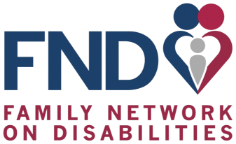INformation Hub
The Right to Disagree
The Right to Disagree
Current and accurate information as of January 2022
In Spanish | En español
___________________
Parents have the right to disagree with decisions that the school system makes with respect to their child with a disability. This includes the school’s decisions about:
—the identification of the child as a “child with a disability”;
—the child’s evaluation;
—the child’s educational placement; and
—the special education and related services that the school provides to the child.
In this page, we’ll explore this parental right and what parents can do when they disagree with the school system.
What should parents do when they don’t agree with the school system regarding any one of these matters?
In all cases when the family and school don’t agree, it’s important for both parties to first discuss their concerns and try to reach a compromise. The compromise can be temporary. For example, you and the school might both agree to test out a plan of instruction or a particular educational placement for a certain period of time. At the end of that period, you and the school can then review your child’s progress. You and the other members of the IEP team can meet anew, discuss how things are going with your child, and decide what to do next. This “test period” can help you and the school reach a comfortable accord over how to help your child.
And if parents and the school still can’t agree, what should parents do?
After trying to work out the disagreement, if you and the school still cannot agree, it’s helpful to know more about the procedural safeguards that parents and children have under IDEA. The law and its regulations include ways through which parents and schools can resolve disputes. These include the following mechanisms:
Mediation, where you and the school sit down with a third person who is impartial (called a mediator), talk openly about the areas of disagreement, and try to reach an accord.
Due process complaint, where you communicate in writing with the school system and describe the provision of IDEA that you feel the school has violated. Filing a due process complaint is the first step in the process by which you ask for a due process hearing.
Resolution process, which begins when the school system receives your due process complaint and which includes a resolution meeting between parents and relevant members of the IEP team who have specific knowledge of the facts identified in the parents’ due process complaint.
Due process hearing, which may occur if the resolution process fails, and in which you as parents and the school present evidence before an impartial person (called a hearing officer), and that individual decides how to resolve the dispute; and
State complaint, in which you communicate in writing with the State Education Agency (SEA) and describe the provision of IDEA that you feel the school has violated. In the majority of cases, the SEA must resolve your complaint within 60 days.
Use the links above to learn more about each of these mechanisms for resolving disputes under IDEA.
Information from Your State or Local School District
In order to implement IDEA, your state has established its own mechanisms by which parents and schools can resolve their differences. These policies and procedures must be consistent with IDEA’s requirements, but they usually include details that will be important to know because they are state-specific. The procedural safeguards notice that you receive from the school will include this information.
If you don’t have the procedural safeguards notice handy, or it doesn’t give you enough of an explanation, get in touch with your local special education department and ask for a copy of their guide for parents about local steps to take in resolving disputes (or whatever guide they offer parents as to local and state special education policies). Another source of this information will be your State Department of Special Education.
Other Sources of Help
You can also get in touch with the Parent Training and Information Center (the PTI) in your state. PTIs are an excellent resource for parents wanting to learn more about the state’s special education policies and process and especially what to do when there’s a disagreement with the school. Find your PTI by visiting our page called Find Your Parent Center, online at:
http://www.parentcenterhub.org/find-your-center/
Would you like to read about Other Procedural Safeguards?
Sure you do. Use the links below to go there quick! Rights of parents include the right:
- to receive a complete explanation of all the procedural safeguards available under IDEA and the procedures in the state for presenting complaints;
- to inspect and review the educational records of their child;
- to participate in meetings related to the identification, evaluation, and placement of their child, and the provision of FAPE (a free appropriate public education) to their child;
- to obtain an independent educational evaluation (IEE) of their child;
- to receive “prior written notice” on matters relating to the identification, evaluation, or placement of their child, and the provision of FAPE to their child;
- to give or deny their consent before the school may take certain action with respect to their child;
- to disagree with decisions made by the school system on those issues (you’re already here)
- to use IDEA’s mechanisms for resolving disputes, including the right to appeal determinations.
SOURCE ARTICLE: Center for Parent Information & Resources
Give us a call at (727) 523-1130 or (800) 825-5736 or request a callback by clicking below.
311 South Missouri Ave, Clearwater, FL 33756
(727) 523-1130
(800) 825-5736

